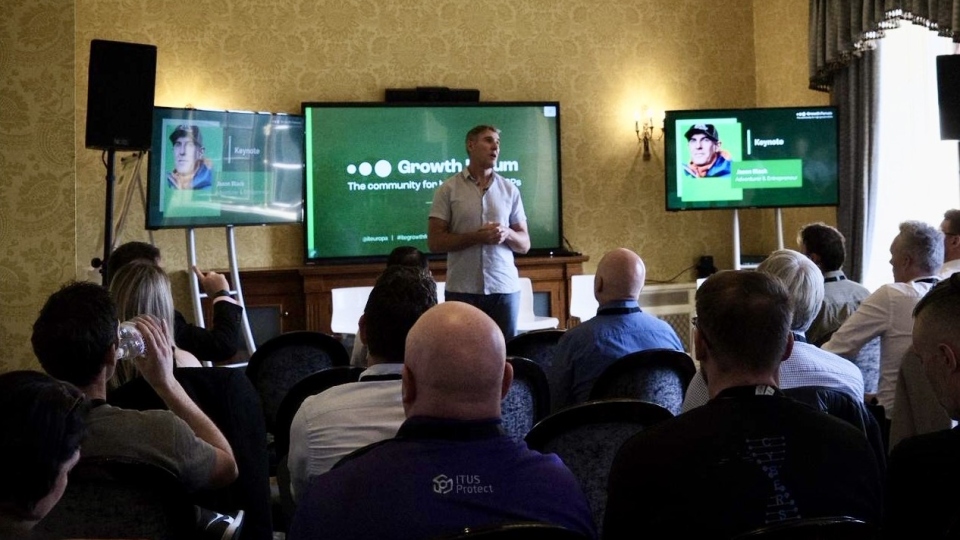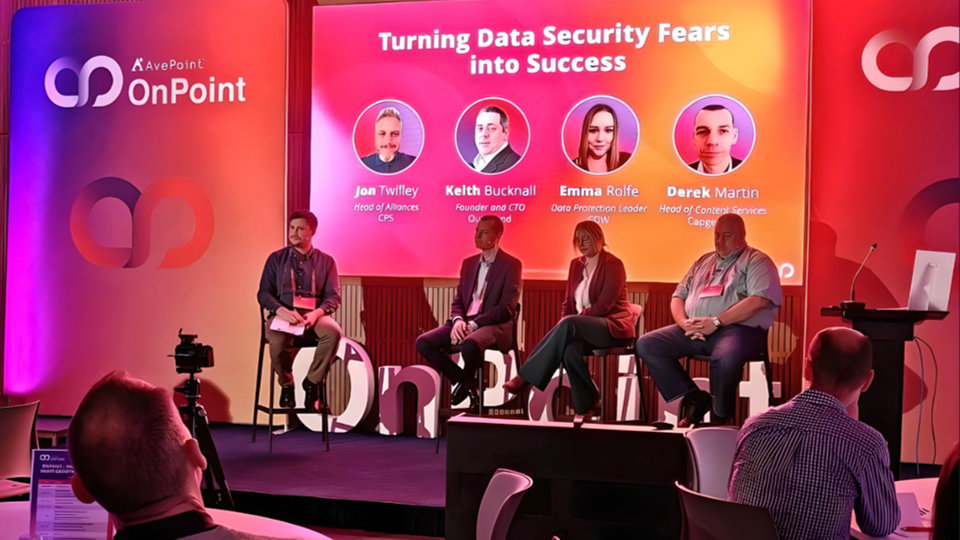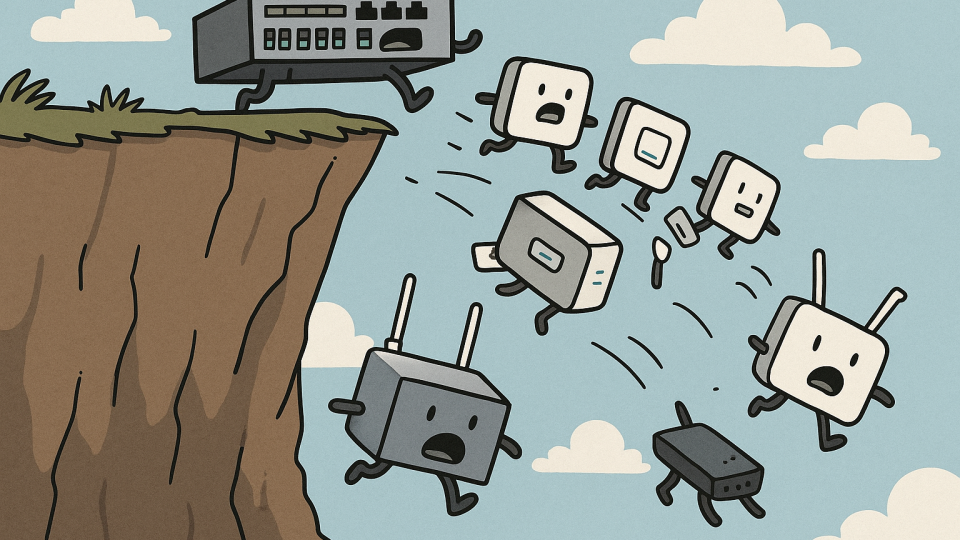
At the IT Europa Regional Growth Forum in Dublin last week, the message from MSP leaders was clear: ambition is welcome, but it must be built on operational realism. Amid an increasingly crowded channel market, where AI noise threatens to drown out more human concerns, MSPs are prioritising sustainability, staff culture and client experience above grand tech disruption.
Across two panel discussions and a series of live audience polls, IT service leaders unpacked the core challenges facing MSPs as they scale. Their take? Long-term growth will come not from headline innovation, but from sharper processes, stronger people strategies and a renewed focus on customer outcomes.
"We’re past the point of trying to hire our way out of every problem,” said Kevin O’Loughlin, CEO at Nostra. “We’re looking at how AI and automation can help us do more with the people we already have — and actually pay them better for it.”
AI yes — but only where it works
As expected, AI dominated discussion — but it did so with surprising maturity. Rather than fawning over the latest tools, panellists explored AI’s potential for measurable ROI and its risks if adopted blindly. Nostra’s O’Loughlin described how the firm had made AI a core part of daily leadership and sales operations, starting internally before extending tools to clients.
"We're already building internal HR widgets using Copilot Studio,” he said. “But we’re also asking hard questions. If my senior team isn’t using AI after six months, do they really belong in leadership?”
Culture, not contracts, wins staff loyalty
Despite Ireland’s booming tech sector, panellists agreed that attracting and retaining skilled talent remains a strategic headache — and not just because of salaries. In the live poll, 56% of respondents cited “competitive salary expectations” as their top challenge, followed by workforce flexibility and company culture.
“You can’t fix culture with money,” said Sophos’ Kyle Torres. “We’ve seen candidates turn down remote roles because they wanted to be part of something physical. That sense of community matters.”
Efficiency is the new innovation
The afternoon panel focused on operational efficiency—and confirmed that most MSPs are still battling integration challenges and manual workflows. When asked about their biggest pain point, audience responses were nearly split between “lack of standardisation” and “too many manual processes.”
“We’re seeing more demand, but we can’t just keep layering on costs,” said Michael McKnight, CEO of Intuity Technologies. “Customers expect better experiences, not more complexity.”
Cybersecurity: still the growth engine
Despite the AI buzz, cybersecurity remains a core investment area, with threat detection ranking second in the audience’s tech priorities. But a different kind of concern also emerged: whether MSPs themselves are taking security seriously enough.
Differentiation: back to basics
When asked how they differentiate, panellists repeatedly pointed to customer communication. It’s not about selling the next big thing — it’s about proving ongoing value.
“Sometimes it’s just reminding your customers what you’ve actually done,” said McKnight. “If you’re blocking 10,000 threats a month and never tell them, don’t be surprised if they ask where the value is.”
Conclusion: pragmatism over hype
The Dublin forum offered a snapshot of an MSP community that is simultaneously ambitious and grounded. AI is no longer an abstract concept — it’s a productivity tool. Efficiency isn’t just a KPI — it’s a survival strategy. And growth isn’t a numbers game — it’s about people, process, and trust.
For all the talk of transformation, this wasn’t a story of revolution. It was a story of resilience. And in today’s channel landscape, that might be the smartest innovation of all.
This practical use of AI was echoed by others. Sophos' Kyle Torres described how their team has adopted AI to generate reports and assist threat analysts in case handling, reducing manual overheads. 'The AI learned directly from our own analysts how we write summaries — it now drafts cases so they can focus on deeper analysis,' he explained.
Despite this operational progress, Torres warned against treating AI as a silver bullet: 'We’re advising partners to start with basics—like acceptable use policies—before worrying about selling AI-based solutions.' The sentiment was clear: AI should assist humans, not replace them.
O'Loughlin shared a deeply personal story that drove his decision to bring employees back to the office. One remote engineer, isolated and unsupported, attempted suicide during lockdown. 'That shook us to the core,' he said. 'We realised remote isn’t always right, even if it’s convenient. We need to understand our responsibility to people’s wellbeing.'
The strategy worked. 'Attrition dropped. Our data showed those coming into the office were far more likely to stay,' he added. 'We’ve made that a leadership responsibility — if someone’s remote, it’s on the manager to ensure they’re supported, not just online.'
ConnectWise’s Rhys Wilson Plant described the industry-wide maturity gap: 'We still see many MSPs with immature operations. Our work focuses on helping them benchmark and plan, quarter by quarter, to raise performance across the board.'
Lenovo’s Colm Spollen stressed that vendors also need to step up: 'It’s not just about selling boxes. We’re focused on end-to-end efficiency—helping MSPs deliver more value across infrastructure, cloud, and security.'
As cybersecurity threats escalate, the ability to demonstrate internal posture is no longer optional. 'At another event, we asked how many MSPs had Cyber Essentials Plus—only half did,' said moderator Will Garside. 'Yet nearly all said they were selling security services. That’s a credibility gap that has to close.'
Jamie Emmitt shared a sobering encounter: 'One MSP owner told my team, “I don’t know why we’re scaring customers with this cybersecurity stuff.” That terrifies me. It should be the other way around.'
For those struggling to stand out, panelists suggested returning to basics—communication and service excellence. 'Ask your customers why they chose you,' said Emmitt. 'They’ll tell you how you’re different, and that’s your playbook.'
McKnight reinforced the point: 'This is a service business. If we don’t tell clients how we’re protecting them, they’ll assume we’re doing nothing. Share the wins—don’t wait to be asked.'
Conclusion: resilience as the new frontier
The Dublin Growth Forum captured a pivotal moment in MSP evolution. Amid AI hype and platform consolidation, the channel is finding strength in foundational excellence. MSPs are modernising their stacks, rethinking hybrid culture, and questioning how they define growth. The real innovation lies not in chasing headlines—but in adapting with purpose, driven by customer needs and human impact.
At a time when every vendor promises transformation, the standout message from Dublin was this: resilience is the most valuable—and most overlooked—asset in the MSP toolkit. It’s what will separate those who thrive from those who burn out.



